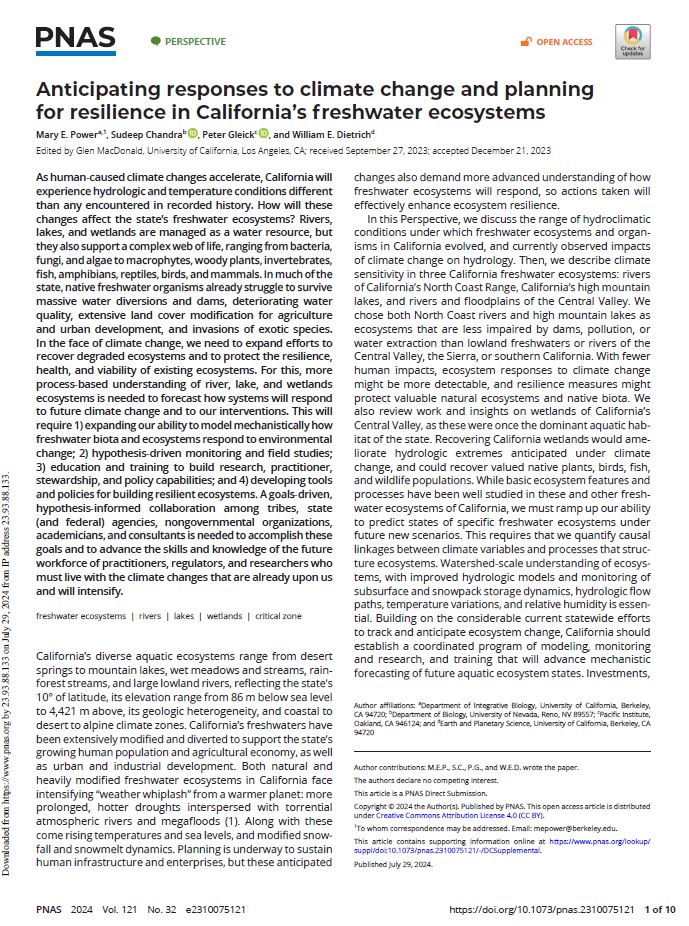Anticipating Responses to Climate Change and Planning for Resilience in California’s Freshwater Ecosystems

Anticipating Responses to Climate Change and Planning for Resilience in California’s Freshwater Ecosystems
Overview
In this peer-reviewed paper, Pacific Institute Senior Fellow and Co-Founder Dr. Peter Gleick and co-authors Mary Power, Sudeep Chandra, and William Dietrich discuss potential solutions for resilience in California’s freshwater ecosystems.
As human-caused climate changes accelerate, California will experience hydrologic and temperature conditions different than any encountered in recorded history. How will these changes affect the state’s freshwater ecosystems? Rivers, lakes, and wetlands are managed as a water resource, but they also support a complex web of life, ranging from bacteria, fungi, and algae to macrophytes, woody plants, invertebrates, fish, amphibians, reptiles, birds, and mammals. In much of the state, native freshwater organisms already struggle to survive massive water diversions and dams, deteriorating water quality, extensive land cover modification for agriculture and urban development, and invasions of exotic species. In the face of climate change, we need to expand efforts to recover degraded ecosystems and to protect the resilience, health, and viability of existing ecosystems. For this, more process-based understanding of river, lake, and wetlands ecosystems is needed to forecast how systems will respond to future climate change and to our interventions. This will require 1) expanding our ability to model mechanistically how freshwater biota and ecosystems respond to environmental change; 2) hypothesis-driven monitoring and field studies; 3) education and training to build research, practitioner, stewardship, and policy capabilities; and 4) developing tools and policies for building resilient ecosystems. A goals-driven, hypothesis-informed collaboration among tribes, state (and federal) agencies, nongovernmental organizations, academicians, and consultants is needed to accomplish these goals and to advance the skills and knowledge of the future workforce of practitioners, regulators, and researchers who must live with the climate changes that are already upon us and will intensify.

